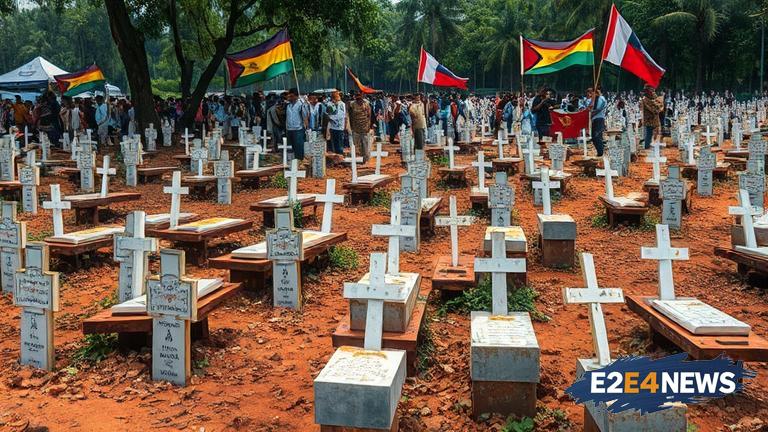The memorial march, which took place in the northern region of Sri Lanka, highlighted the plight of families who have been searching for their loved ones for decades. The march was organized to commemorate the discovery of mass graves in the area, which are believed to contain the remains of thousands of people who were killed during the country’s civil war. The war, which lasted from 1983 to 2009, was fought between the Sri Lankan government and the Liberation Tigers of Tamil Eelam (LTTE), a separatist militant group. The conflict resulted in the deaths of an estimated 80,000 to 100,000 people, with many more displaced. The discovery of the mass graves has sparked outrage and demands for justice from the international community. The march was attended by families of the missing, human rights activists, and politicians, who called for international investigations into the alleged war crimes. The Sri Lankan government has been accused of committing atrocities during the war, including massacres, disappearances, and torture. The government has denied any wrongdoing, but the discovery of the mass graves has raised questions about its involvement in the alleged war crimes. The international community has been criticized for its slow response to the crisis, with many calling for greater action to be taken. The United Nations has called for an independent investigation into the alleged war crimes, but the Sri Lankan government has resisted such efforts. The memorial march was seen as an opportunity for the international community to come together and demand justice for the victims and their families. The march was also attended by representatives from human rights organizations, who called for greater accountability and transparency from the Sri Lankan government. The discovery of the mass graves has also raised questions about the role of the international community in preventing such atrocities from occurring in the future. The march was seen as a reminder of the importance of holding governments accountable for their actions and ensuring that those responsible for human rights abuses are brought to justice. The Sri Lankan government has been accused of failing to investigate the alleged war crimes and of not doing enough to support the families of the missing. The international community has been urged to take greater action to support the families and to ensure that those responsible for the alleged war crimes are held accountable. The memorial march was a powerful reminder of the need for justice and accountability in Sri Lanka and the importance of the international community in supporting such efforts. The march was attended by people from all over the world, who came together to show their solidarity with the families of the missing and to demand justice for the victims. The discovery of the mass graves has sparked a global outcry, with many calling for international investigations and prosecutions. The Sri Lankan government has been accused of trying to cover up the alleged war crimes, but the discovery of the mass graves has made it clear that such efforts will not be successful. The international community has been urged to take greater action to support the families of the missing and to ensure that those responsible for the alleged war crimes are brought to justice. The memorial march was a powerful reminder of the importance of justice and accountability in Sri Lanka and the need for the international community to come together to support such efforts.
